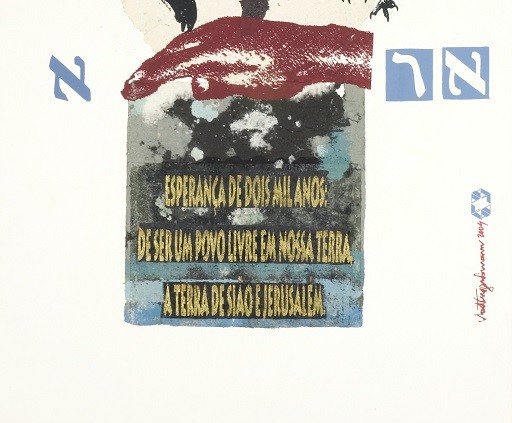Arbiter Testimony
An Analysis in the Work I Was a Child of Holocaust Survivors by Bernice Eisenstein
DOI:
https://doi.org/10.35699/1982-3053.2023.47813Keywords:
Resistance literature, Memory, Arbiter testimonyAbstract
This paper seeks to analyze the work I Was a Child of Holocaust Survivors by Bernice Eisenstein (2006), through the lens of Arbiter Testimony. The work deals with the author's relationship with her parents, in which she tries to understand her own life and the ghost of the Holocaust that is ever-present in her daily life. This research aims to investigate how the Arbiter Testimony is presented in the work, a concept addressed by Sarmento-Pantoja (2019), given that the arbiter of testimony is given by the one who has heard and arbitrates on what and how to narrate, and may or may not have experienced the boundary event. We will benefit from the critical fortune of Vilela (2012), who discusses the importance of memory, Gagnebin (2009), who discusses the importance of keeping memory alive through narrations, and Sarmento-Pantoja (2019), who argues about the three types of testimonies, the Testis, the Superstes, and the Arbiter. This study is the result of the actions taken in the scientific initiation project Configurações de Resistência em Narrativas Anglófonas Contemporâneas -CRENAC, in which the authors acted as a FAPESPA (Fundação Amazônia de Amparo a Estudos e Pesquisas) fellow and coordinator.
Downloads
References
CARVALHAL, Tania Franco. Literatura comparada: a estratégia interdisciplinar. Revista brasileira de literatura comparada, v. 1, n. 1, p. 09-21, 2017.
EISENSTEIN, Bernice. I was a child of Holocaust survivors. Toronto.Ont: McClelland & Stewart, 2006.
GAGNEBIN, Jeanne Marie. História e narração em Walter Benjamin. revisada. 2009
GAGNEBIN, Jeanne Marie. Lembrar escrever esquecer. São Paulo: Editora 34, 2006.
KICHKA, Michel. Second Generation: The things I didn't tell my father. Europe Comics, 2016.
PAPINI, Pedro Augusto; FONSECA, Tania Mara Galli. The readers’ turn: the return from the disaster. Psicologia USP, v. 32, 2021.
LEVI, Primo. If this is a man/the truce. Hachette UK, 2014.
LEWGOY, Bernardo. Holocausto, trauma e memória. WebMosaica, v. 2, n. 1, 2010.
SARMENTO-PANTOJA, Carlos Augusto. O testemunho em três vozes: testis, superstes e arbiter. Literatura e Autoritarismo, [S. l.], n. 33, 2019. DOI: 10.5902/1679849X35461. Disponível em: https://periodicos.ufsm.br/LA/article/view/35461. Acesso em: 17 ago.
SPIEGELMAN, Art. The complete maus: A survivor's tale. Pantheon, 1996.
VILELA, Eugénia. Cossos inhabitables. Errant, Filosofia i memòria. Enrahonar: an international journal of theoretical and practical reason, p. 35-52, 2000.
VILELA, Eugenia. Do testemunho. Princípios: revista de Filosofia, v. 19, n. 31, p. 141- 179, 2012.
Downloads
Published
How to Cite
Issue
Section
License
Copyright (c) 2023 Arquivo Maaravi: Revista Digital de Estudos Judaicos da UFMG

This work is licensed under a Creative Commons Attribution 4.0 International License.
Os direitos autorais pertencem exclusivamente aos autores. Os direitos de licenciamento utilizados pelo periódico é a licença Creative Commons Attribution 4.0 (CC BY 4.0): são permitidos o compartilhamento (cópia e distribuição do material em qualquer meio ou formato) e adaptação (remix, transformação e criação de material a partir do conteúdo assim licenciado para quaisquer fins, inclusive comerciais.






